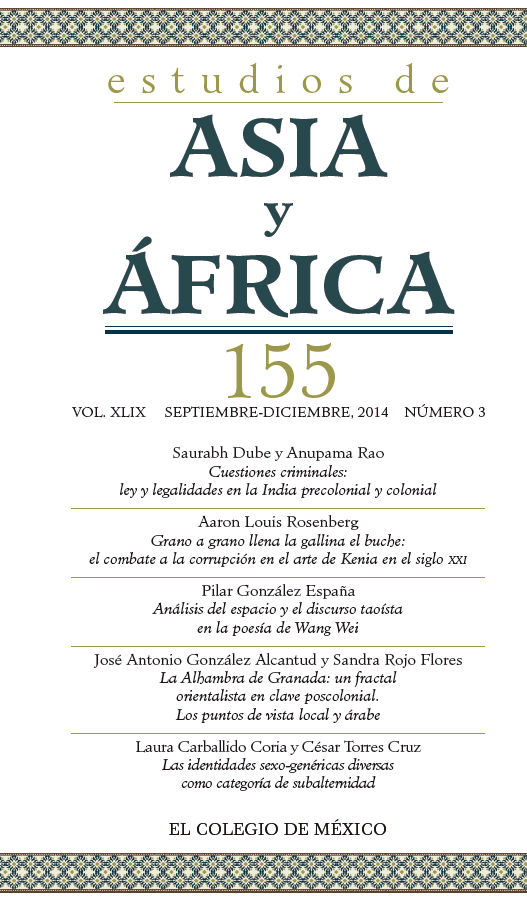Abstract
One of the most recalcitrant problems facing Africans has been the extent to which they have become embroiled in networks of self-enrichment that are obstructive to the processes essential to people’s lives.
Kenya presents cases of self-aggrandizement and unethical behavior that are some of the most shocking on the globe. Artists spend both energy and talent exposing the nature of and possible solutions to this hydra-headed problem in their midst. Novelists such as Moyez Vassanji, cartoonists like Godfrey Mwampembwa and songwriters such as Eric Wainaina produce works detailing and challenging corrupt practices in present-day Kenya. These represent an important and progressive movement within these art forms. The fact that the same theme is similarly developed across multiple genres forces us to reevaluate the divisive categories within European and American criticism and to recognize the extent to which artists and audiences in Kenya are able and apt to respond to multiple media for information and entertainment.
References
Achebe, Chinua, The Trouble with Nigeria, Oxford, Heinemann Educational Publishers, 1983.
Alou, Mahaman Tidjani, “Corruption in the Legal System”, en Giorgio Blundo y Jean-Pierre Olivier de Sardan, Everyday Corruption and the State, Londres, Zed Books, 2006, pp. 137-176.
Barber, Karin, The Generation of Plays. Yorùbá Popular Life in Theater, Bloomington, Indiana University Press, 2000.
Blundo, Giorgio, “Corruption in Africa and the Social Sciences: A Review of the Literature”, en Giorgio Blundo y Jean-Pierre Olivier de Sardan, Everyday Corruption and the State, Londres, Zed Books, 2006, pp. 15-68.
Blundo, Giorgio y Jean-Pierre Olivier de Sardan, “Everyday Corruption in West Africa”, en Blundo y Olivier de Sardan, Everyday Corruption and the State, Londres, Zed Books, 2006, pp. 69-109.
Buchanan, James M. y Gordon Tullock, The Calculus of Consent: Logical Foundations of Constitutional Democracy, Ann Arbor, University of Michigan Press, 1962.
Butty, James, “Liberia / Corruption react – Bropleh / Butty – 06-13-07”, documento recibido por correspondencia electrónica. [Africa-newsshare@voanews.com, 13 de junio de 2007.]
Chang, Ha-Joon, Bad Samaritans: The Myth of Free Trade and the Secret History of Capitalism, Londres-Nueva York, Bloomsbury Press, 2008.
Cohen, Abner, Custom & Politics in Urban Africa: A Study of Hausa Migrants in Yoruba Towns, Nueva York, Taylor & Francis, 2004 [1962].
Fabian, Johannes, Moments of Freedom: Anthropology and Popular Culture, Charlottesville, University of Virginia Press, 1998.
Freedom House, “Kenya”, en Countries at the Crossroads, 2004: A Survey of Democratic Governance, Nueva York, Freedom House, 2004.
Imbo, Samuel Oluoch, Oral Traditions as Philosophy: Okot p’Bitek’s Legacy for African Philosophy, Lanham, Rowman & Littlefield Publishers, Inc., 2002.
Kahora, Billy, “The True Story of David Munyakei”, Kwani? , núm. 3, 2005 [?], pp. 38-98.
Malooned [película], dir. Bob Nyanja, reparto: Gabriella Mutia y Godfrey Odhiambo, Kenia, Cinematic solutions, 2007.
Maughan-Brown, David, Land, Freedom & Fiction: History and Ideology in Kenya, Londres, Zed Books, 1985.
Mbaku, John Mukum, Corruption in Africa: Causes, Consequences, and Cleanups, Lanham, Lexington Books, 2007.
Musila, Grace A., “Democrazy: Laughter in Gado’s Editorial Cartoons (1992-1999)”, en James Ogude y Joyce Nyairo (eds.), Urban Legends, Colonial Myths: Popular Culture and Literature in East Africa, Trenton, Africa World Press, 2007, pp. 97-124.
Mwachiro, Kevin, “Kenya ‘loo’ film gets global deal”, BBC News, 20 de julio de 2007. [http://news.bbc.co.uk/2/hi/africa/6908812.stm, consultado el 25 de julio de 2007.]
Mwampembwa, Godfrey, Democrazy! , Nairobi, Sasa Sema Publications, 2000.
Mwampembwa, Godfrey, The End of an Error and the Beginning of a New One, Nairobi, Sasa Sema, 2006.
Mwampembwa, Godfrey. [www.gadonet.com/gcart.asp?w=,108,13,80,137,23,224,21,47,60&c=,108,13,80,137,16,188,20,36,45,63, consultado el 15 de julio de 2012.]
Ogude, James, “The Cat that Ended Up Eating the Homestead Chicken: Murder, Memory and Fabulization in D. O. Misiani’s Dissident Music”, en James Ogude y Joyce Nyairo (eds.), Urban Legends, Colonial Myths: Popular Culture and Literature in East Africa, Trenton, Africa World Press, 2007, pp. 173-200.
Ranger, Terence, “The Invention of Tradition in Colonial Africa”, en Eric Hobsbawm y Terence Ranger (eds.), The Invention of Tradition, Cambridge, Cambridge University Press, 1983, pp. 211-262.
Riffaterre, Michael, Semiotics of Poetry, Bloomington, Indiana University Press, 1978.
Rosenberg, Aaron L., “Remembered Intimacies: Tradition and Gendered Power in Tanzanian Creative Expression”, Research in African Literatures, vol. 43, núm. 1, 2012, pp. 118-135.
Rosenberg, Aaron L., Eastern African Popular Songs: Verbal Art in States of Transformation, Trenton, Africa World Press, 2011.
Rosenberg, Aaron L., “Form and Theme as Unifying Principles in Tanzanian Verbal Art: Elieshi Lema and Orchestra DDC Mlimani Park”, Wasafiri, vol. 26, núm. 1, 2011, pp. 40-49.
Rosenberg, Aaron L., “The Literature of Song: Kantai and Wainaina’s ‘Joka’ as Syncretic Multi-Text”, Journal of the African Literature Association, vol. 1, núm. 2, 2007, pp. 108-128.
Thiong’o, Ngugi Wa, Decolonising the Mind: The Politics of Language in African Literature, Nairobi, East African Educational Publishers, 1981.
Vassanji, M. G., The In-Between World of Vikram Lall, Nueva York, Alfred A. Knopf, 2004.
Vassanji, M. G., entrevista con el autor para Voice of America, 14 de julio de 2007.
Wainaina, Eric, “Dunia Ina Mambo”, TwendeTwende [disco compacto], Nairobi, 2006.
Wainaina, Eric, entrevista con el autor y clase de swahili 002 en la Pennsylvania State University, 5 de mayo de 2007.
Wainaina, Eric, “Nchi ya Kitu Kidogo”, Sawa Sawa [disco compacto], Roxbury, copyright Eric Wainaina & Christian Kaufmann, 2001.
Webster’s Ninth New Collegiate Dictionary, 1983.
This work is licensed under a Creative Commons Attribution-NonCommercial-NoDerivatives 4.0 International License
Copyright 2022 Estudios de Asia y África



